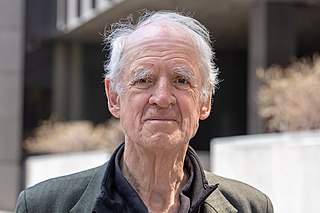A Quote by Dalai Lama
If we choose an external marker as the measure of our inner worth, whether it is the amount of money we make, or others' opinion of us, or the success of some project we're involved in, sooner or later we're bound to be battered by life's inevitable changes. After all, money comes and goes, and thus is an unstable source of self-esteem, an unreliable foundation upon which to build our identity.
Quote Topics
After
Amount
Battered
Bound
Build
Changes
Choose
Comes And Goes
Esteem
External
Foundation
Goes
Identity
Inevitable
Inevitable Change
Inner
Involved
Later
Life
Make
Measure
Money
Money Comes And Goes
Opinion
Others
Our
Project
Self
Self-Esteem
Some
Sooner
Sooner Or Later
Source
Success
Thus
Unreliable
Unstable
Us
Whether
Which
Worth
Related Quotes
Stressing the practice of living purposefully as essential to fully realized self-esteem is not equivalent to measuring an individual's worth by his or her external achievements. We admire achievements-in ourselves and others-and it is natural and appropriate for us to do so. But that is not the same thing as saying that our achievements are the measure or grounds of our self-esteem. The root of our self-esteem is not our achievements but those internally generated practices that, among other things, make it possible for us to achieve.
Our sense of identity is in large measure conferred on us by others in the ways they treat or mistreat us, recognize or ignore us, praise us or punish us. Some people make us timid and shy; others elicit our sex appeal and dominance. In some groups we are made leaders, while in others we are reduced to being followers. We come to live up to or down to the expectations others have of us.
The practice of patience guards us against losing our presence of mind. It enables us to remain undisturbed, even when the situation is really difficult. It gives us a certain amount of inner peace, which allows us some self-control, so that we can choose to respond to situations in an appropriate and compassionate manner, rather than being driven by our disturbing emotions.
Emotional dependence is the opposite of emotional strength. It means needing to have others to survive, wanting others to "do it for us," and depending on others to give us our self-image, make our decisions, and take care of us financially. When we are emotionally dependent, we look to others for our happiness, our concept of "self," and our emotional well-being. Such vulnerability necessitates a search for and dependence on outer support for a sense of our own worth.
Our experience of love is more of a measure of whether we're connected with the universal source of this energy. In other words, there's some life energy that we have and sort of share with people we might be relating to that takes place, that operates whether we're sort of feeling in a state of love or not. But love is the measure of whether we're really connected with the internal source of this energy where we can consciously sort of fill up and amplify the amount of energy that we're able to take in from the inside.
[Grace] is given not to make us something other than ourselves but to make us radically ourselves. Grace is given not to implant in us a foreign wisdom but to make us alive to the wisdom that was born with us in our mother?s womb. Grace is given not to lead us into another identity but to reconnect us to the beauty of our deepest identity. And grace is given not that we might find some exterior source of strength but that we might be established again in the deep inner security of our being and in learning to lose ourselves in love for one another to truly find ourselves.
Intuitive guidance means having the self-esteem to recognize that the discomfort or confusion that a person feels is actually directing him to take charge of his life and make choices that will break him out of stagnation or misery. And, while we measure our own success in terms of our personal comfort and security, the universe measures our success by how much we have learned.
If we focus on our health, including our inner health, our self-esteem, and how we look at ourselves and our confidence level, we'll tend to be healthier people anyway, we'll tend to make better choices for our lives, for our bodies, we'll always be trying to learn more, and get better as time goes on.
The biggest adversary in our life is ourselves. We are what we are, in a sense, because of the dominating thoughts we allow to gather in our head. All concepts of self-improvement, all actions and paths we take, relate solely to our abstract image of ourselves. Life is limited only by how we really see ourselves and feel about our being. A great deal of pure self-knowledge and inner understanding allows us to lay an all-important foundation for the structure of our life from which we can perceive and take the right avenues.
We define our identity always in dialogue with, sometimes in struggle against, the things our significant others want to see in us. Even after we outgrow some of these others—our parents, for instance—and they disappear from our lives, the conversation with them continues within us as long as we live.








































